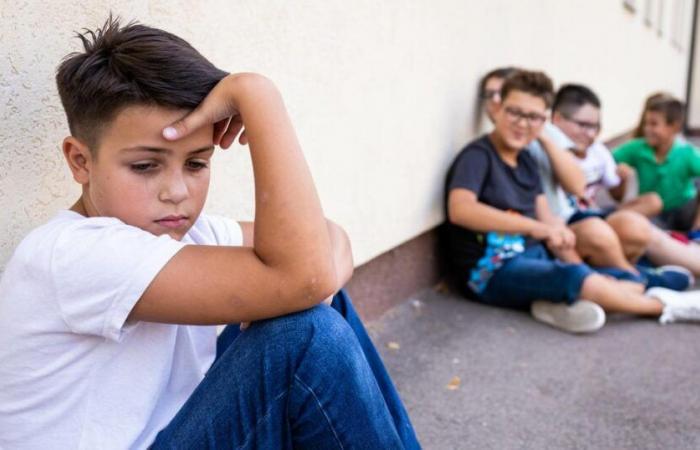Children and adolescents revisited “one two three, sun” and the “mannequin challenge” in favor of a challenge pointing out the sexuality of the students. Teachers and parents fear that this trend born on TikTok will increase the risk of school bullying.
In playgrounds and on social networks, the famous games “one two three, sun” but also the “mannequin challenge”, fashionable on Facebook and Instagram in 2016, have given way to a very different variation. Children and teenagers have fun throwing the phrase at each other: “The first one to move is gay”. From then on, players must freeze like a statue, at the risk of being compared to a homosexual person, in an insulting way, as reported by New Obs .
If this game is all the rage at school, it is on TikTok that the “trend” was born. It then spread all over the world, to the United States, Latin America, but also to Japan, under the name «first one who moves is gay». Videos are posted every day, and some reach up to 5 million likes. It was especially last July that this token of bad taste created a buzz on the internet, when football player Zlatan Ibrahimović himself tried the game with the American influencer “IShowSpeed”, with 33.6 million subscribers. subscribers on YouTube. The video of the footballer and the YouTuber, which went viral, was relayed for several days on social networks.
”
data-script=”https://static.lefigaro.fr/widget-video/short-ttl/video/index.js”
>
An additional risk of harassment
So, since the start of the school year, this dubious trend has gradually made its way into school. “It’s been going around for some time, particularly among boys, especially in middle school. Strictly in the large classes of primary school, but not so much in high school”indicates Jean-Rémi Girard, president of Snalc (National Union of High Schools and Colleges).
If establishments are used to seeing new “trends” flourish, like “Quoicoubeh” or “Apanyan”, which “generally disappear after two or three months”specifies Jean-Rémi Girard, this poses more of a problem. “This game is directly about discrimination. Students can spread bad ideas about sexuality, but also false rumors against classmates, which can very quickly turn into school harassment. It is essential to explain to students that this sentence is homophobic, so that they realize the seriousness of the words”continues the teacher.
A difficult-to-detect “underwater game”
Enough to stress parents, who emphasize the importance of acting accordingly in the face of this phenomenon. “Homophobia is a crime, punishable by law. And children are not aware of this. No one should be singled out for their romantic preferences. The difficulty for the teaching teams is that it is an underwater game: we do not necessarily see the students playing it, and some do not want to talk about it”details Grégoire Ensel, vice-president of the FCPE (Federation of Parents’ Councils).
For him, it is also up to the authorities to act, “to regulate this content easily accessible to young people on TikTok and others”also citing the viral trend of “Superman dance”, presenting significant risks of injury and now banned in certain schools. “We should also put in place media and digital life education to teach students the risks of everything they can see on the networks”concludes the father.
”
data-script=”https://static.lefigaro.fr/widget-video/short-ttl/video/index.js”
>






